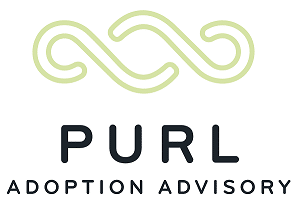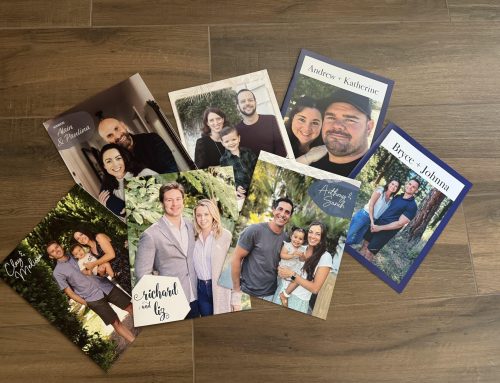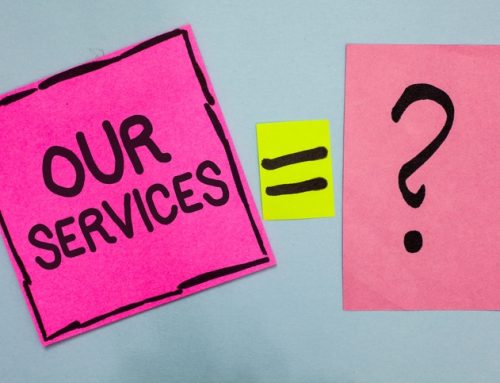
This post is written by a guest blogger, Amy Wilkerson of Copihue Counseling. Amy is a Licensed Clinical Social Worker with an immense passion for working with individuals touched by the adoption experience. As an international and transracial adoptee, Amy’s work has been lifelong in advocating for adoptees and their rights. Graduating in 2010 from the University of Wisconsin-Madison with her Master in Social Work (MSW), Amy has taken on several roles within the child welfare system. Now, Amy is in private practice in Tucson, Arizona focusing on complex and attachment trauma. Amy has two children and is a military spouse. She is also an author of a children’s book on adoption, Being Adopted.
___
Creating a family through adoption comes with many complexities. Too often, these complexities are minimized or overlooked, and the impact can be catastrophic. Despite well-meaning adoptive parents, if there is not intentionality behind seeking ongoing education and support, children may be emotionally isolated and silenced, no matter how much love a family has to offer. Whether in the pre-adoptive phase or deep into the chapters of post adoption parenting, adoption focused therapy can be a transformative process for children and adoptive families and caregivers.
Pre-Adoption Therapy
Each phase of adoption offers its unique challenges and triggers. Acknowledging that adoption stems from grief and trauma is a new concept for many prospective adoptive parents. No matter what inspires a person or family to adopt, agencies and workers often do not emphasize processing the “why” behind a family’s decision to adopt. Without digging into the “why,” parents may be unintentionally avoiding needed processing through their own grief and expectations on topics. Without addressing unhealed memories, grief, or loss; clashes can occur in meeting the needs of children who have experienced trauma. Once prospective parents and caregivers learn how the process begins, a new dynamic emerges. The hope is conversations transition from, “how does our family grow through the process of adoption,” to including and how to be mindful of first family stability, resources, support, and relinquished children’s emotional needs and access to long term assistance. Pre-Adoption Therapy allows unbiased and nonjudgmental spaces for prospective parents to tackle these potentially triggering and heavy topics. It is in these spaces that an adoption informed therapist can help challenge thoughts and ideas surrounding race, expectations, birth family, reunion, grief, loss, parenting philosophy, and how to create trauma informed spaces.
Post-Adoption Therapy
In the adoption process, too little an emphasis is placed on long term, ongoing, sustainable, and accessible mental healthcare for parents and adopted children. We need to stop looking at adoption as a transaction to create a family. Adoption is about creating meaningful moments of connection to heal attachment trauma over the lifespan. All adopted children share this primal wound of loss, and their symptoms of grief are wide ranging which evolve and morph over the years. Symptoms adoptees experience can manifest on a spectrum, and while not every adoptee is thinking and processing their adoption experience all day, every day, it is important parents have an understanding of how to create moments of healing in a proactive manner so post adoption therapy does not come into a family’s experience as a response to crisis. For parents, understanding the neuroscience behind attachment and how to create trauma informed spaces is one of the biggest areas therapy can benefit and uplift familial relationships. If the expectation is adoptees only will seek therapy to navigate their experiences, too many moments will pass unseized for connection in a way that is validating and honoring of children’s experiences. When parents have a stronger understanding of their child’s neurobiology and how trauma impacts them, they tend to have more compassion and patience when it comes to addressing their child’s symptoms because they have more understanding of what is going on. For children, therapy can helped remove the shame their symptoms can produce and help them realize nothing is wrong with them, something happened to them. However, post-adoption therapy is a tool that can be utilized for much more than just addressing difficult behaviors and big feelings. It can be used to process potential decisions such as birth family search, support in learning how to talk about the big topics, and navigating race relations for transracial families. For adoptive families, therapy is beneficial for every member of the family as unique emotions and feelings can arise over the years. Adoption does not just impact one child, it impacts and alters a biological and adoptive families for generations.
Adoption Informed Therapy
Finding a provider to work with can be a long battle. For families touched by the adoption experience, finding a therapist that understands grief and loss with all the nuances of adoption and attachment can be a challenge. Often, well-meaning clinicians can perpetuate an already harmful narrative for both adoptees and adoptive parents by reinstating a child should be grateful or appreciative for their adoption. Adoption informed therapists are often able to understand the complexities of identity, race, grief and loss, attachment, and systems as it pertains to adoption. Often, adult adoptees are great options as their lived experience has given them insider views and empathy towards this unique journey. Adoption is a lifelong experience, and the goal is families grow alongside their children. No matter where your family is in processing the big emotions and feelings that come along with adoption, please know there is support for you and you are not alone.

This post is written by a guest blogger, Amy Wilkerson of Copihue Counseling. Amy is a Licensed Clinical Social Worker with an immense passion for working with individuals touched by the adoption experience. As an international and transracial adoptee, Amy’s work has been lifelong in advocating for adoptees and their rights. Graduating in 2010 from the University of Wisconsin-Madison with her Master in Social Work (MSW), Amy has taken on several roles within the child welfare system. Now, Amy is in private practice in Tucson, Arizona focusing on complex and attachment trauma. Amy has two children and is a military spouse. She is also an author of a children’s book on adoption, Being Adopted.
___
Creating a family through adoption comes with many complexities. Too often, these complexities are minimized or overlooked, and the impact can be catastrophic. Despite well-meaning adoptive parents, if there is not intentionality behind seeking ongoing education and support, children may be emotionally isolated and silenced, no matter how much love a family has to offer. Whether in the pre-adoptive phase or deep into the chapters of post adoption parenting, adoption focused therapy can be a transformative process for children and adoptive families and caregivers.
Pre-Adoption Therapy
Each phase of adoption offers its unique challenges and triggers. Acknowledging that adoption stems from grief and trauma is a new concept for many prospective adoptive parents. No matter what inspires a person or family to adopt, agencies and workers often do not emphasize processing the “why” behind a family’s decision to adopt. Without digging into the “why,” parents may be unintentionally avoiding needed processing through their own grief and expectations on topics. Without addressing unhealed memories, grief, or loss; clashes can occur in meeting the needs of children who have experienced trauma. Once prospective parents and caregivers learn how the process begins, a new dynamic emerges. The hope is conversations transition from, “how does our family grow through the process of adoption,” to including and how to be mindful of first family stability, resources, support, and relinquished children’s emotional needs and access to long term assistance. Pre-Adoption Therapy allows unbiased and nonjudgmental spaces for prospective parents to tackle these potentially triggering and heavy topics. It is in these spaces that an adoption informed therapist can help challenge thoughts and ideas surrounding race, expectations, birth family, reunion, grief, loss, parenting philosophy, and how to create trauma informed spaces.
Post-Adoption Therapy
In the adoption process, too little an emphasis is placed on long term, ongoing, sustainable, and accessible mental healthcare for parents and adopted children. We need to stop looking at adoption as a transaction to create a family. Adoption is about creating meaningful moments of connection to heal attachment trauma over the lifespan. All adopted children share this primal wound of loss, and their symptoms of grief are wide ranging which evolve and morph over the years. Symptoms adoptees experience can manifest on a spectrum, and while not every adoptee is thinking and processing their adoption experience all day, every day, it is important parents have an understanding of how to create moments of healing in a proactive manner so post adoption therapy does not come into a family’s experience as a response to crisis. For parents, understanding the neuroscience behind attachment and how to create trauma informed spaces is one of the biggest areas therapy can benefit and uplift familial relationships. If the expectation is adoptees only will seek therapy to navigate their experiences, too many moments will pass unseized for connection in a way that is validating and honoring of children’s experiences. When parents have a stronger understanding of their child’s neurobiology and how trauma impacts them, they tend to have more compassion and patience when it comes to addressing their child’s symptoms because they have more understanding of what is going on. For children, therapy can helped remove the shame their symptoms can produce and help them realize nothing is wrong with them, something happened to them. However, post-adoption therapy is a tool that can be utilized for much more than just addressing difficult behaviors and big feelings. It can be used to process potential decisions such as birth family search, support in learning how to talk about the big topics, and navigating race relations for transracial families. For adoptive families, therapy is beneficial for every member of the family as unique emotions and feelings can arise over the years. Adoption does not just impact one child, it impacts and alters a biological and adoptive families for generations.
Adoption Informed Therapy
Finding a provider to work with can be a long battle. For families touched by the adoption experience, finding a therapist that understands grief and loss with all the nuances of adoption and attachment can be a challenge. Often, well-meaning clinicians can perpetuate an already harmful narrative for both adoptees and adoptive parents by reinstating a child should be grateful or appreciative for their adoption. Adoption informed therapists are often able to understand the complexities of identity, race, grief and loss, attachment, and systems as it pertains to adoption. Often, adult adoptees are great options as their lived experience has given them insider views and empathy towards this unique journey. Adoption is a lifelong experience, and the goal is families grow alongside their children. No matter where your family is in processing the big emotions and feelings that come along with adoption, please know there is support for you and you are not alone.



